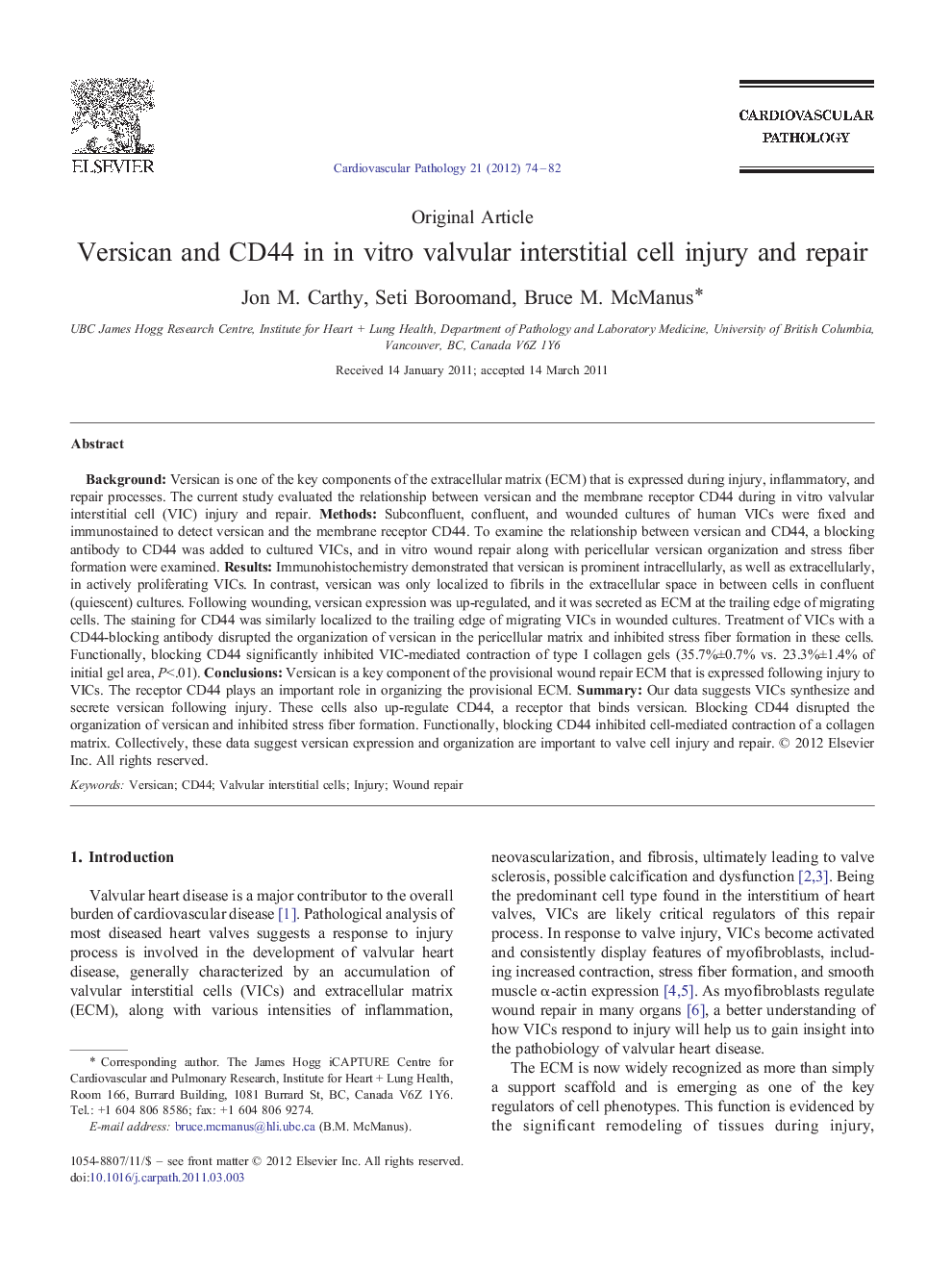| Article ID | Journal | Published Year | Pages | File Type |
|---|---|---|---|---|
| 2898788 | Cardiovascular Pathology | 2012 | 9 Pages |
BackgroundVersican is one of the key components of the extracellular matrix (ECM) that is expressed during injury, inflammatory, and repair processes. The current study evaluated the relationship between versican and the membrane receptor CD44 during in vitro valvular interstitial cell (VIC) injury and repair.MethodsSubconfluent, confluent, and wounded cultures of human VICs were fixed and immunostained to detect versican and the membrane receptor CD44. To examine the relationship between versican and CD44, a blocking antibody to CD44 was added to cultured VICs, and in vitro wound repair along with pericellular versican organization and stress fiber formation were examined.ResultsImmunohistochemistry demonstrated that versican is prominent intracellularly, as well as extracellularly, in actively proliferating VICs. In contrast, versican was only localized to fibrils in the extracellular space in between cells in confluent (quiescent) cultures. Following wounding, versican expression was up-regulated, and it was secreted as ECM at the trailing edge of migrating cells. The staining for CD44 was similarly localized to the trailing edge of migrating VICs in wounded cultures. Treatment of VICs with a CD44-blocking antibody disrupted the organization of versican in the pericellular matrix and inhibited stress fiber formation in these cells. Functionally, blocking CD44 significantly inhibited VIC-mediated contraction of type I collagen gels (35.7%±0.7% vs. 23.3%±1.4% of initial gel area, P<.01).ConclusionsVersican is a key component of the provisional wound repair ECM that is expressed following injury to VICs. The receptor CD44 plays an important role in organizing the provisional ECM.SummaryOur data suggests VICs synthesize and secrete versican following injury. These cells also up-regulate CD44, a receptor that binds versican. Blocking CD44 disrupted the organization of versican and inhibited stress fiber formation. Functionally, blocking CD44 inhibited cell-mediated contraction of a collagen matrix. Collectively, these data suggest versican expression and organization are important to valve cell injury and repair.
